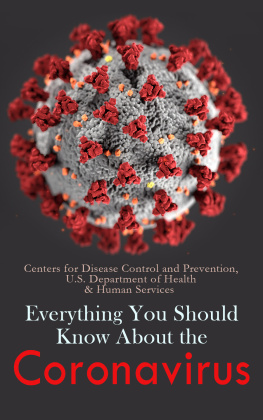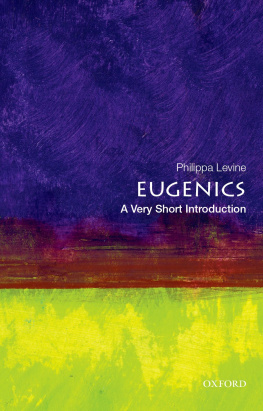Horatio M. (Horatio Milo) Pollock - Eugenics as a Factor in the Prevention of Mental Disease
Here you can read online Horatio M. (Horatio Milo) Pollock - Eugenics as a Factor in the Prevention of Mental Disease full text of the book (entire story) in english for free. Download pdf and epub, get meaning, cover and reviews about this ebook. year: 2021, publisher: Good Press, genre: Politics. Description of the work, (preface) as well as reviews are available. Best literature library LitArk.com created for fans of good reading and offers a wide selection of genres:
Romance novel
Science fiction
Adventure
Detective
Science
History
Home and family
Prose
Art
Politics
Computer
Non-fiction
Religion
Business
Children
Humor
Choose a favorite category and find really read worthwhile books. Enjoy immersion in the world of imagination, feel the emotions of the characters or learn something new for yourself, make an fascinating discovery.

- Book:Eugenics as a Factor in the Prevention of Mental Disease
- Author:
- Publisher:Good Press
- Genre:
- Year:2021
- Rating:3 / 5
- Favourites:Add to favourites
- Your mark:
- 60
- 1
- 2
- 3
- 4
- 5
Eugenics as a Factor in the Prevention of Mental Disease: summary, description and annotation
We offer to read an annotation, description, summary or preface (depends on what the author of the book "Eugenics as a Factor in the Prevention of Mental Disease" wrote himself). If you haven't found the necessary information about the book — write in the comments, we will try to find it.
Eugenics as a Factor in the Prevention of Mental Disease — read online for free the complete book (whole text) full work
Below is the text of the book, divided by pages. System saving the place of the last page read, allows you to conveniently read the book "Eugenics as a Factor in the Prevention of Mental Disease" online for free, without having to search again every time where you left off. Put a bookmark, and you can go to the page where you finished reading at any time.
Font size:
Interval:
Bookmark:

of Mental Disease
HORATIO M. POLLOCK, Ph.D.
Statistician, New York State Hospital Commission
370 Seventh Avenue
New York City
1921
| Founded 1909 | Incorporated 1916 |
| 370 SEVENTH AVENUE, NEW YORK CITY |
| President | Executive Committee |
| Dr. Walter B. James | Dr. William L. Russell, Chairman |
| Vice-Presidents | Dr. Owen Copp |
| Charles W. Eliot | Stephen P. Duggan |
| Dr. Bernard Sachs | Dr. Walter E. Fernald |
| Dr. William H. Welch | Matthew C. Fleming |
| Treasurer | Dr. Walter B. James |
| Otto T. Bannard | Dr. George H. Kirby |
| Committee on Mental Deficiency | Committee on Education |
| Dr. Walter E. Fernald, Chairman | Dr. C. Macfie Campbell, Chairman |
| Edith M. Furbush, Statistician Executive Officers Dr. Thomas W. Salmon, Medical Director Dr. Frankwood E. Williams, Associate Medical Director Dr. V. V. Anderson, Associate Medical Director Dr. Clarence J. DAlton, Executive Assistant Clifford W. Beers, Secretary |
Statistician, New York State Hospital Commission
The burden of mental disease is each year becoming heavier. State hospitals for mental disease throughout the country are overcrowded, and the construction of new hospitals does not keep pace with the increase of patients. Fairly complete censuses show that the number of patients with mental disease under treatment in institutions increased from 74,028 in 1890 to 232,680 in 1920. The rate per 100,000 of population increased from 118.2 to 220.1. Careful estimates based on statistics of the New York State Hospital Commission indicate that approximately 1 out of 25 persons becomes insane at some period of life. The economic loss to the United States on account of mental disease, including loss of earnings as well as maintenance of patients, is now over $200,000,000 per year. Although much of the apparent increase in the prevalence of mental disease may be due to causes that do not involve weakened resistance to the stresses of life, the load born by the public is clearly becoming more oppressive.
Font size:
Interval:
Bookmark:
Similar books «Eugenics as a Factor in the Prevention of Mental Disease»
Look at similar books to Eugenics as a Factor in the Prevention of Mental Disease. We have selected literature similar in name and meaning in the hope of providing readers with more options to find new, interesting, not yet read works.
Discussion, reviews of the book Eugenics as a Factor in the Prevention of Mental Disease and just readers' own opinions. Leave your comments, write what you think about the work, its meaning or the main characters. Specify what exactly you liked and what you didn't like, and why you think so.










